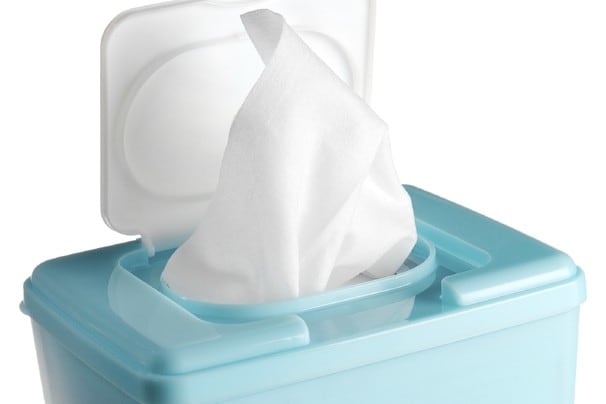While the packaging may say flushable, in reality, flushable wipes are now a huge problem. CBC recently published an article on the topic of flushable wipes, which showed that 21 of 23 wipes didn’t disintegrate at all. The Ryerson report, published in April of this year, clearly shows the damage done by these wipes advertised as flushable.
Municipalities across Canada spend upwards of $250 million annually to remove blockages, many caused by flushing items that should never be flushed. The packaging may say flushable, and they will pass into the system easily by flushing. It’s what happens after that is the problem. Many flushable items have a negative impact on sewer systems installed in anticipation of biodegradable solids and liquids.
Mike Seymour, of MSR Solutions, knows the battle that takes places below our streets.
“Our sewers were designed to handle human waste,” Seymour said. “Our sewage system was not created as a catch all for garbage. Many people don’t know what they can flush, so they think if it fits, you can flush it.”
While flushable baby and cosmetic wipes are the latest to top the list of things not to flush, there are several other items that can wreak havoc on our waste water systems.
Do Not Flush
- Condoms – do not break down in water
- Makeup removal pads and cotton swabs – absorb liquid and break down slowly
- Tampons – absorb liquid and break down slowly
- Diapers – a huge no-no as they can hold many times their weight in liquid
- Paper towels & tissues – these are not the same as toilet paper, they do not break down quickly
- Cigarette Butts – filled with toxic chemicals that in turn could end up in your drinking water.
- Dental Floss – can actually form a net and hold on to other debris
- Medication – return unused items to the pharmacy for disposal, do not flush into our water system
- Kitty Litter – another “flushable” item that is not flushable. Litter dehydrates waste which then absorbs water when flushed
- Gum – this will create a sticky situation in your pipes
- Pets – while most people don’t try to flush their dead pets down the toilets, many a dead pet fish received a “burial at sea” via the toilet. Like everything else on this list, they don’t break down easily and if you have other “non-flushable” items going down the toilet, chances are they’ll clog up together.
You will notice that each of the above items tend to retain their shape for a long time. Only items which readily break down or can be digested, should be flushed. Disposing of items in the proper place not only saves you money on plumbing bills, it also helps the entire waste water disposal system.
For information on the services provided by MSR Solutions, visit our Services page.
